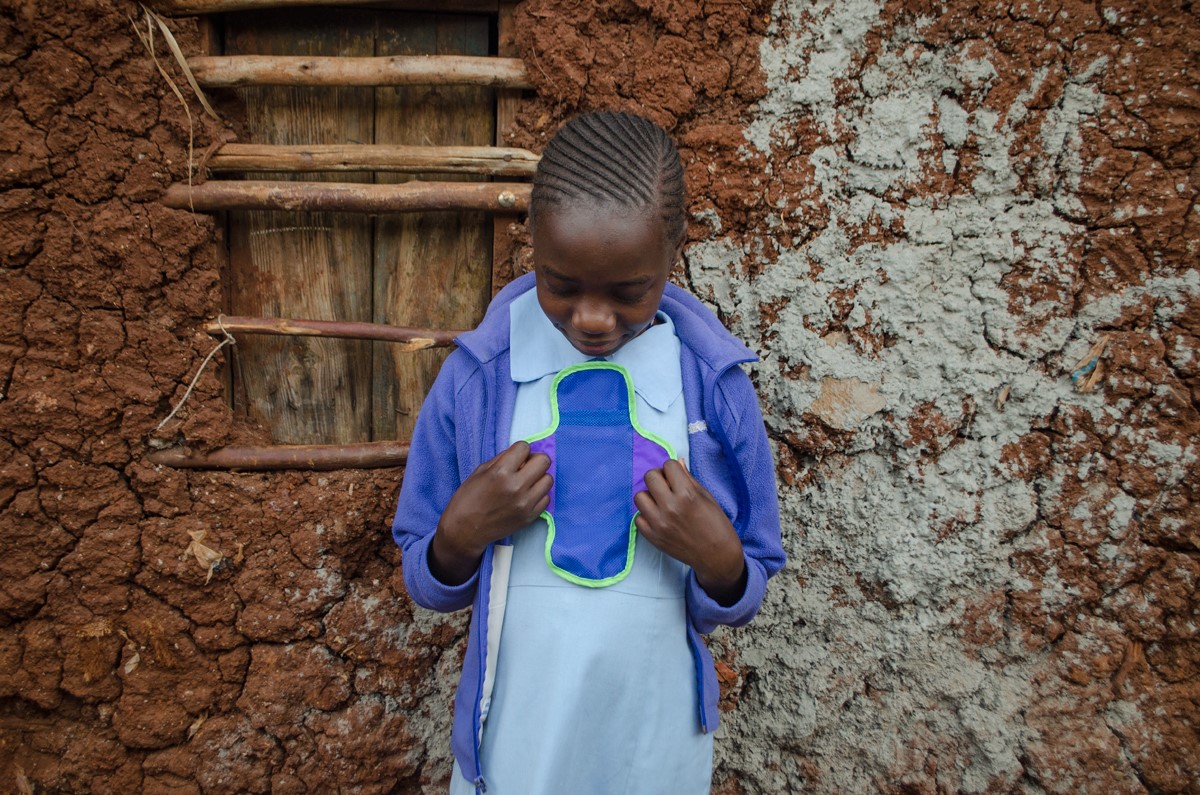
(Image courtesy of Water For People)
The Women in the Sanitation Economy Innovation Lab aims to help women-led and women-focused businesses in the sanitation and hygiene space achieve success. An initiative of the nonprofit Toilet Board Coalition in partnership with Kimberly-Clark, the company’s foundation and its Kotex brand, the Innovation Lab recently completed its first pilot.
The pilot included five women-led startup businesses from Kenya, the U.S. and the U.K., along with 11 Kimberly-Clark employees across different functions from around the globe who acted as mentors to the group. The aim is to “cultivate and catalyze” businesses in the early stages of development to give the so-called “sani-preneurs” the training and tools they need to succeed.
During the first phase of the pilot, the team behind the Innovation Lab learned a great deal about how to build effective mentor-mentee relationships and empower entrepreneurs to accelerate solutions in their own communities. These lessons learned will inform the second iteration of the program, and they’re also a must-read for anyone looking to form effective corporate and NGO partnerships that drive social impact, build employee engagement, and help early-stage entrepreneurs bring their ideas to the next level.
Align the program with your purpose
The Toilet Board is on a mission to scale solutions for SDG 6.2, which calls for sustainable water, sanitation and hygiene access for all, with a focus on women and girls and those in vulnerable situations.
This aim clearly aligns with the Innovation Lab — and with Kimberly-Clark’s ambition to improve the lives of 1 billion people in underserved communities by 2030, along with Kotex’s brand purpose to ensure that a period never stands in the way of any woman’s progress. This synergy proved essential for success, leaders said.
“The number of mentors that stepped forward, their dedication to it, and the outstanding leadership of the Kimberly-Clark team leads was above and beyond what we hoped for,” Alex Knezovich, director of operations at the Toilet Board, told TriplePundit. “It demonstrates the power of aligning the program’s purpose so perfectly with Kotex’s purpose and what that can unlock for each stakeholder — most importantly, the businesses and employees that benefit from the program.”
From the Kimberly-Clark side, the enthusiasm was genuine and organic. “The Innovation Lab created great excitement at Kimberly-Clark locations around the world and across different functions,” Melis Sener, senior global marketing manager for adult and feminine care at Kimberly-Clark, told TriplePundit. “It was a great opportunity for our employees to personally contribute, create meaningful impact, and live our values. The Innovation Lab also sparked powerful employee engagement — since the goal of the program was very clear and focused, it drove that engagement way more than we expected.”

Tailor the mentorship program for each entrepreneur’s needs
Just like tailoring clothes, Knezovich noted that one of the contributors to success was ensuring that each entrepreneur’s experience was aligned to their individual needs. “We heard it loud and clear from these entrepreneurs: Program engagement is highest when the program is customized to the needs and priorities of the entrepreneurs, and it is most effective when it is as interactive as possible,” she told TriplePundit.
The program offered a number of resources to entrepreneurs, from finance and pitching, to marketing and supply chain advice, to human resources and more. But those resources were not part of a one-size-fits-all approach. Entrepreneurs entered the program with specific requests, and Kimberly-Clark and the Toilet Board worked to source expertise from their networks to meet those specific and evolving needs.
“Each business is so unique and their stage of growth so nuanced that tailored mentorship is where the real impact is found,” Knezovich explained.
Mentorship is a two-way street
“Entrepreneurs are naturally always learning and adapting ideas to the context of their businesses,” Knezovich said. “Approaching skills building as peer-to-peer learning is much more fun and fulfilling for everyone.”
This aligns with what experts note comprises a successful mentorship program: listening, setting specific goals and ensuring good communication. Further, as these entrepreneurs build their businesses in an area of critical and underserved public health needs, the stakes for success are high and the time to meet goals is limited, so getting things right is important.

Learning from lessons: What’s next for the Innovation Lab
Both Kimberly-Clark and the Toilet Board felt the pilot phase of the Innovation Lab exceeded expectations. “The selection of entrepreneurs and mentors was all new for us, and it worked really well,” Sener told TriplePundit. Now, both are looking at what comes next.
As a first step, the Toilet Board plans to expand the mentorship from six months to a year in the next iteration of the Lab and to grow their team internally in order to offer more support. The group is also building a network of advisors from the business community to provide guidance to the entrepreneurs after they have left the program. Experts note that continued engagement between mentors and mentees has lasting effects, both for expanding networks and improving skills.
Listening to the entrepreneurs is crucial to determine not only which mentor would be the best fit, but also how to structure and plan training and conversations. The Lab team found it necessary to be flexible, adjusting the program as needed as it progressed. But the structure still had to be there to ensure everyone received what they needed to take their businesses to the next step, Knezovich said.
“Hope and ambition run strong in innovators,” she told us. She said it was important for them to be realistic in terms of what could actually be accomplished during the pilot, inserting checkpoints every two to three months to make sure everything stayed on track.
The proof is in the impact on entrepreneurs
The bottom line, however, was the impact the program had on the participants. “The relationships that are initiated and cultivated in programs like this have immediate and tangible implications on the businesses and business leaders,” Knezovich said.
For Kimberly-Clark, participation not only contributed to the company’s social impact goals, but it also had a significant impact on its employees who served as mentors. “At Kimberly-Clark, our purpose is to provide Better Care for a Better World, and leading programs like this with our NGO partners is a key part of how we deliver on it. The Innovation Lab is a great example of how our employees can help accelerate positive change and support female leaders who are addressing some of the biggest sanitation challenges that disproportionately impact women,” Sener added.
In the end, the success of the Innovation Lab pilot means that women-owned and women-centered businesses can help fill the gaps for various critical societal needs so that all of us can live better lives. Mentorship programs that work are the ones that do not just pull a suit off the rack and assume it will fit — they take careful measurements and tailor appropriately.
This article series is sponsored by Kimberly-Clark and produced by the TriplePundit editorial team.
Images courtesy of Water For People, Be Girl and Syna Consultancy

Kate is a writer and policy wonk, with a focus on water, clean energy, climate change and environmental security. She spent over a decade running energy-water nexus and energy efficiency programs at Environmental Defense Fund as well as time at the U.S. Departments of Energy and Defense, U.S. Government Accountability Office, and state and federal legislatures. She serves as an Advisory Board member of CleanTX, which aims to accelerate the growth of the clean tech industry in Texas.














